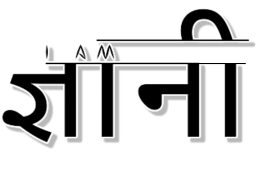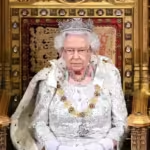India, the world’s largest democracy and one of the fastest-growing economies, plays a crucial role in global politics. With its strategic location, diverse population, and rich history, India’s international relations have evolved significantly over the decades. This blog explores the key aspects of India’s foreign policy, its relationships with major powers, and the challenges and opportunities that lie ahead.
Historical Context
India’s international relations have been shaped by its colonial past, post-independence foreign policy, and the evolving global order. After gaining independence in 1947, India adopted a non-aligned approach during the Cold War, aiming to maintain neutrality while engaging with both superpowers. Over the years, this stance has evolved into a more proactive foreign policy, focusing on national interests, economic growth, and regional stability.
Key Pillars of India’s Foreign Policy
- Non-Alignment and Strategic Autonomy: India continues to emphasize non-alignment, seeking to maintain strategic autonomy in its foreign relations. This principle allows India to engage with multiple countries and blocs without being tied to any single alliance.
- Economic Diplomacy: With a growing economy, India has shifted its focus toward economic diplomacy, seeking trade partnerships and investment opportunities worldwide. Initiatives like “Make in India” and “Digital India” aim to attract foreign investment and boost economic growth.
- Security and Defense: India prioritizes national security, maintaining strong defense ties with countries like the United States, Russia, and France. The country has also engaged in regional security arrangements, such as the Quadrilateral Security Dialogue (Quad) with the US, Japan, and Australia, to counter emerging threats.
- Cultural Diplomacy: India promotes its soft power through cultural diplomacy, showcasing its rich heritage, art, and philosophy globally. Initiatives like the International Day of Yoga and cultural exchange programs help strengthen India’s global image.
Major Relationships
- United States: The US and India share a strategic partnership based on common democratic values and mutual interests. The relationship has deepened in recent years, focusing on defense cooperation, counter-terrorism, and trade. The two nations have engaged in several dialogues and agreements, including the 2020 Basic Exchange and Cooperation Agreement (BECA) for geospatial intelligence.
- China: India’s relationship with China is complex, characterized by economic cooperation and territorial disputes. While both countries are major players in the BRICS and Shanghai Cooperation Organization (SCO), border tensions and strategic rivalry remain challenges. India continues to engage in dialogue while strengthening its defense capabilities.
- Russia: India maintains a historically strong relationship with Russia, rooted in defense cooperation and energy collaboration. Despite global shifts, India values its ties with Russia, particularly in defense procurement and technology transfer.
- Regional Relations: India plays a pivotal role in South Asia, engaging with neighboring countries like Bangladesh, Nepal, and Sri Lanka to promote stability and economic growth. The South Asian Association for Regional Cooperation (SAARC) serves as a platform for regional cooperation, although challenges persist.
- Middle East: India’s relations with the Middle East are vital for energy security and trade. The country has cultivated strong ties with Gulf nations, balancing its relationships with countries like Iran and Saudi Arabia while engaging in issues such as terrorism and regional stability.
- Monuments in europe

- The Biggest Wars in History: Focus on World Wars & Global Conflicts

- Bangladesh: The Hidden Gem of South Asia

- Monarchy In Britain

Challenges Ahead
- Geopolitical Tensions: The rise of China as a global power poses challenges for India, particularly in the Indo-Pacific region. Navigating this complex geopolitical landscape will require strategic foresight and collaboration with like-minded nations.
- Terrorism: India faces ongoing threats from terrorism, particularly from groups operating across its borders. Strengthening counter-terrorism cooperation with global partners is crucial for enhancing national security.
- Climate Change: As a developing nation, India must balance economic growth with environmental sustainability. Engaging in global climate negotiations and adopting green technologies will be essential for addressing climate change.
- Global Health: The COVID-19 pandemic highlighted the importance of global health cooperation. India has emerged as a key player in vaccine production and distribution, showcasing its commitment to global health initiatives.





